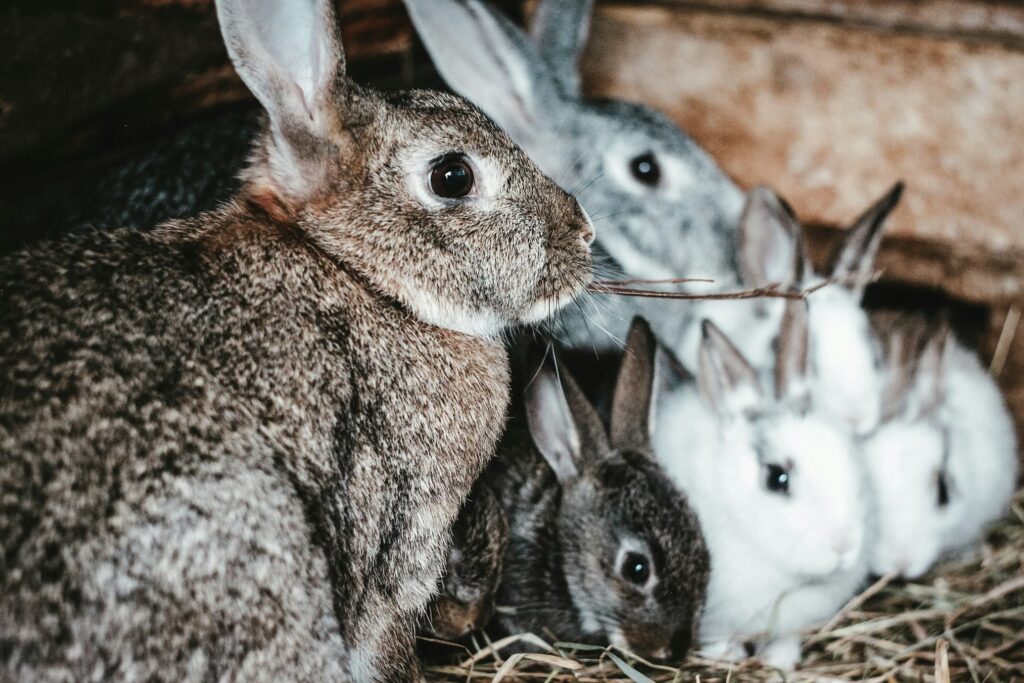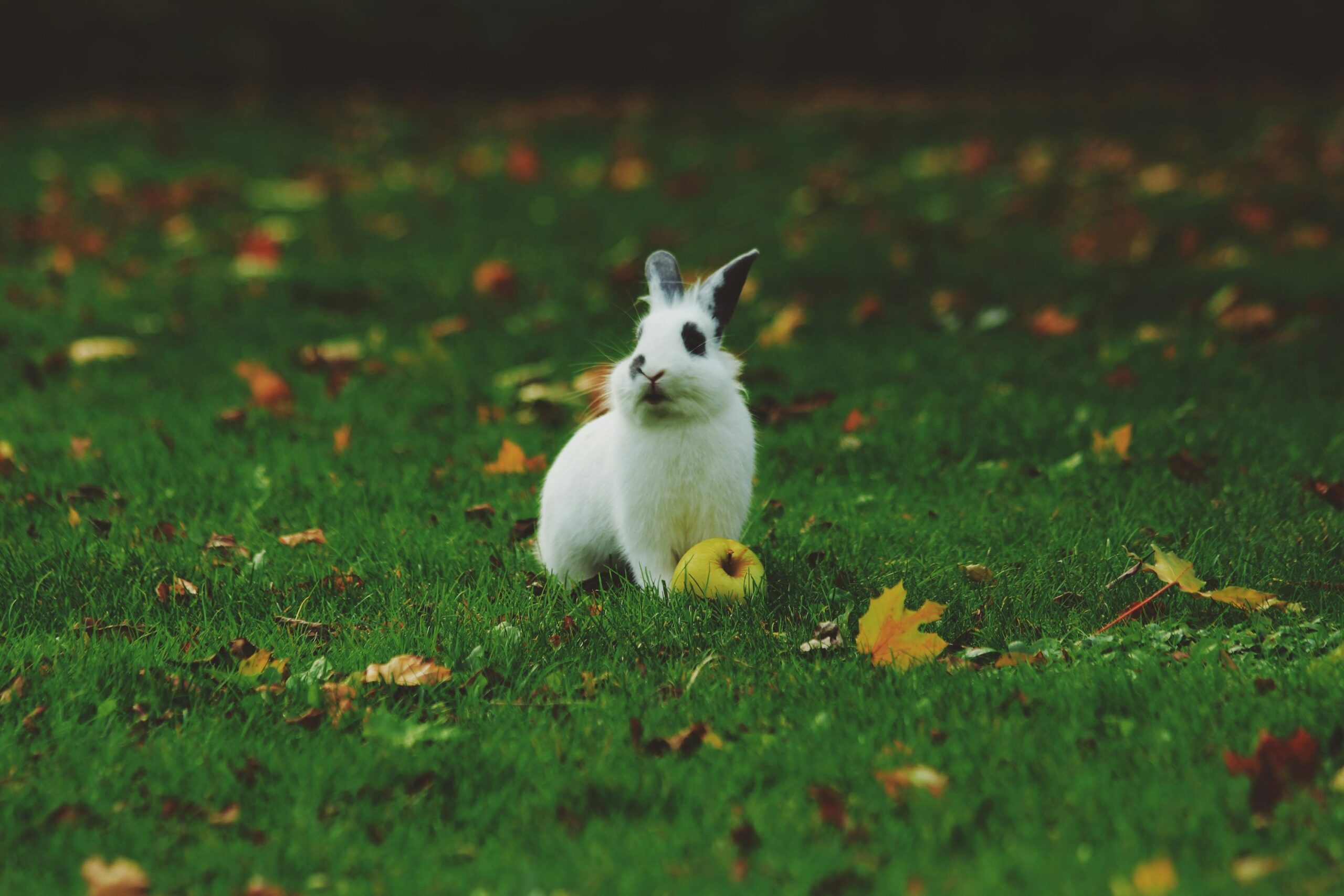Food & Diet
Contrary to common belief in the Philippines, pellets should not be a rabbit’s main source of food. Rabbits need unlimited access to hay, which provides the essential nutrients and fiber they require. Relying on pellets as their primary diet can increase the risk of certain health issues.

A rabbit’s diet should be at least 80% hay, 10% vegetables, 5% pellets, and 5% treats.
Here’s a simple guide to help you understand a rabbit’s basic diet:
- 6 months and below: Unlimited alfalfa hay and unlimited pellets
- 3 months: Introduce vegetables one at a time and in small quantities
- 7 months: Introduce other types of hay such as timothy hay, while gradually decreasing intake of pellets and alfalfa hay, and introduce fruits and treats but only to be given occasionally with maximum of 1-2 tablespoons a day
- 1 year old and above: Unlimited timothy hay, grass hay or oat hay, while pellets should be a maximum of ½ cup a day, and vegetables increased to at least 2 cups a day
Alfalfa hay is ideal for young rabbits due to its high protein, calcium, and fat content, which supports growth. However, these nutrients are not suitable for adults, so it’s recommended to switch to timothy hay or other grass hays like orchard hay once a rabbit turns one. Adult rabbits should primarily eat hay, with minimal pellets, vegetables, and fruits. When introducing new vegetables or fruits, offer them one at a time in small amounts and monitor for any signs of diarrhea, stopping immediately if it occurs. Always check that the food is safe for rabbits before giving it.
Local veggies and fruits that are safe for rabbits:
- Apple
- Arugula
- Banana
- Basil
- Bok Choy
- Carrot (more of a treat, than a staple veggie)
- Cilantro (Wansoy)
- Dill
- Fennel
- Mango
- Melon
- Mint
- Mustard Greens (Mustasa)
- Papaya
- Parsley (not to be fed everyday)
- Pineapple
- Romaine Lettuce (NOT Iceberg!)
- Watercress
- Wheatgrass
Under any circumstances, please DO NOT feed the following foods to your rabbit as they might be fatal:
- Coffee Beans
- Chocolate
- House Plants (Since most are toxic to rabbits)
- Iceberg Lettuce
- Onions
Choose high fiber pellets (at least 18%) for your rabbit, avoiding mixes with nuts, fruits, or treats; reserve those as occasional rewards. Alfalfa based pellets suit young rabbits, while timothy based ones are better for adults. When switching pellet types or brands, mix the new with the old and gradually phase out the old to help your rabbit adjust. Additionally, ensure your rabbit has unlimited access to clean water, whether in a bowl or a bottle, depending on their preference.

